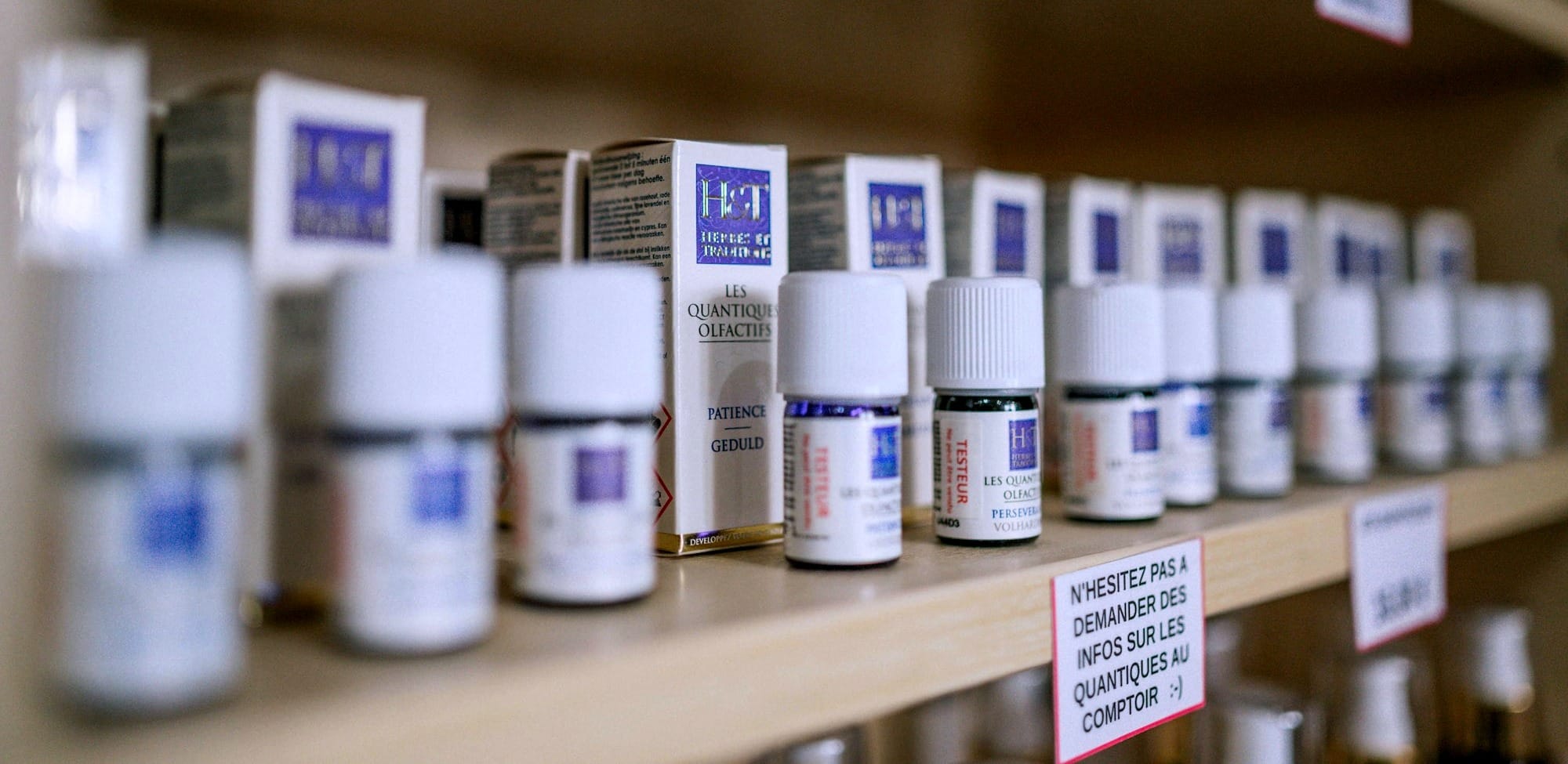Community Pharmacy Practice Resident: A Day in the Life
Our "Day in the Life" series increases your knowledge about what career paths are available, and what a typical workday entails for these professionals!

With so many career options available to pharmacists after graduation, the "Day in the Life" series is meant to provide you with insights into what it's like to be a pharmacist in various areas so that you can pursue what's right for you!

Questions #1-13 cover topics related to a day in the life of a community pharmacy practice resident.
1. Tell us a bit about your background (school, training, etc…)
I was born and raised in small-town eastern North Carolina then moved to Virginia for undergrad and lived there for four years. After undergrad, I moved to Charleston, SC for pharmacy school! I’m a North Carolina girl, so I’m happy to be back here for residency. I’m currently completing a PGY1 Community-based Pharmacy Residency at UNC Chapel Hill.
2. Can you provide some background into how you found community pharmacy as your field of interest?
I have loved community pharmacy for as long as I can remember. When I was growing up, I would shadow different occupations during the summer break to get an idea of what I would want to do when I grew up and fell in love with the local independent pharmacy! That actually ended up being my first job. I loved the scheduling that allowed the pharmacy owner to own a business and have a family, the direct patient interaction in the pharmacy, and the community involvement opportunities. I’ve always loved serving others and being a friendly face anyone can talk to, so I thought pharmacy was a great blend of providing healthcare and serving as a resource to patients.
3. Did you enjoy other rotation types in school such as hospital, ambulatory, academia, etc?
Yes! I honestly did not have a rotation I did not enjoy. I liked ambulatory care pharmacy and I am lucky enough to be able to incorporate that into my community pharmacy job by providing a remote patient monitoring service. One of the pharmacies I work for is also directly tied to a clinic, so I have opportunities there as well. I also enjoyed academia and have been able to stay involved there by guest lecturing at the pharmacy school a few times per semester!
4. Can you explain what a community pharmacy residency is and how it differs from a hospital-based residency and/or fellowship?
The biggest difference is the projects required for the program. Since they’re both accredited by ASHP, the project quantity is similar, but the project topics are different. We do still have a big research project, but our other projects are centered around advancing community-based pharmacy. For example, we have a business plan project we have to write and implement before the year is over.
5. What are your responsibilities/tasks during a typical workday or workweek?
This is a hard question for me because I am currently working at two different pharmacies. So, my work week may look a little different depending on where I am working. At both pharmacies, I am involved in offering clinical services. At one I do more medication adherence packaging, opioid consultations, and health risk assessments, and at the other, I do remote patient monitoring and dietary supplement consultations. And then work on the bench a couple of days a week as well.

6. What does completion of a PGY1 in community pharmacy provide you for the future?
I believe community-based residency has provided me with the skill set needed to become an innovative clinical practitioner and a leader in the profession of pharmacy. Throughout this year I have had the confidence to create change and advance patient care services in the community setting. Some of the opportunities I’ve been exposed to this year that will prepare me for my career are precepting opportunities, presenting continuing education, implementing clinical services, and a big research project. If you had told me I would design, implement, and analyze a research project this time last year I would have never believed you! I am eager to continue to build upon these skills I developed this year and hopefully become a wonderful leader like those I have had the opportunity of learning from this year.
7. What is your career goal after residency?
My long-term goal is independent ownership! I am so passionate about independent pharmacy and have always seen myself owning. In the short-term though, I do see myself remaining a staff pharmacist and hopefully getting some managerial experience before the time comes for ownership.
8. What are some of the challenges you face as a pharmacist working as a community pharmacy resident?
Just being totally honest here – I don’t think community pharmacists are respected in the manner some other specialties of pharmacy are. That has been the biggest challenge. I can’t tell you how many times I’ve been told I would be “taking the easy way out” by pursuing a career in community pharmacy. That is absolutely not true! I love the direct patient interaction I get every single day when I come in, whether I am having sit-down appointments with patients or working on the bench. And ironically, the community-pharmacy path is where I always saw myself going! As I said in an earlier response, I’ve dreamed of owning my own independent pharmacy since my high school years.
9a. How can current students or pharmacists best prepare for a career in community pharmacy?
First and foremost, I would say get involved in organizations or groups that you are passionate in and stay involved! Community practice is hard because we have to advocate for ourselves. We need more community pharmacists that are proud of the work they are doing and passionate enough about it to advocate for our profession and help other healthcare professionals and the community understand the true value of what a pharmacist can do for the healthcare world. Unfortunately, I still think so many people have the belief that pharmacists just count pills and that is not true! Outside of physicians, we actually receive the most training in school and in residencies to be able to practice.
9b. Would you recommend pursuing a residency like you did?
That depends. You will only get out of it what you put in. I think a lot of pharmacy students (student-me included) have the mindset of “Oh I have a lot of experience in community pharmacy, so why would I need a residency?” Not going to lie, that was me too! But that was because community-based residency is not highlighted in the same way traditional PGY-1’s are. No wonder we didn’t see the benefit! By doing some research in my fourth year, I learned there are so many potential benefits. The biggest benefit for me this year has been the phenomenal mentorship I’ve received from three incredible business owners. As a hopeful owner one day myself, these mentorships have been invaluable. I’ve been able to see the business side of the retail pharmacy world that is not taught in school like contracting with insurance companies, sitting in on meetings with real estate developers analyzing geographical areas when looking at areas for potential stores, and creating product lists of what to sale over the counter, and so much more! I’ve also been given the freedom to create and implement clinical services for the pharmacy. This is a huge bonus that I don’t see available to those who go straight into practice compared to residency.

10. How do you keep up with the ever-changing literature and new medications coming to market?
This is where RX Cheatsheets is so beneficial! Having RX Cheatsheets and an outlet to post my materials to has helped me stay accountable by refreshing my materials and staying up-to-date on changes. I also just started a “New Drug Approval” guide that I will be posting for all newly-approved medications!
11. What are some of the most common questions you are asked on the job?
As a fresh grad - Are you sure you’re the pharmacist? 😂 Haha, all jokes aside, I actually get asked if a medication I am dispensing is vegan or gluten-free quite often! I’ve probably been asked that 5 times since graduating last year.
12. What is the biggest impact you think you have on patient care?
So far I think the biggest impact I’ve had on direct patient care is with the opioid consultations I hold. It’s blown my mind how many patients who receive opioid medications are not familiar with what naloxone is, or if they have heard of it, and are not sure how to use it. Because of these consultations, the pharmacy has been able to dispense naloxone to 80% of patients who completed the consultation who did not previously have naloxone. Through the consultation we discussed with each individual patient opioid side effects and warnings, how to dispose of medications, morphine milligram equivalents, and addressed any relevant drug-drug or drug-disease state interactions with opioids. The pharmacy has also gotten lots of great feedback on this service from patients and the patients appreciated the personalized attention they received during this consultation.
13. What are you most proud of so far from your residency?
I am definitely proud of the opioid pledge and the amount of patients we’ve gotten naloxone, too. The project actually received an Incentive Grant from the APhA Foundation, so we were able to waive all copays of the naloxone for these patients which is a huge benefit! Unfortunately, a lot of insurance companies are charging large enough copays for naloxone to discourage patients from picking it up.
Outside of the opioid pledge, I am excited to continue the remote patient monitoring service we started at the pharmacy. This was my business plan project, so to see it finally come together and begin to enroll patients has been so rewarding! We currently have about 20 patients enrolled in either blood pressure or blood glucose remote monitoring, and many more are interested in joining the program!
I am also proud of the supplement consultation service. I’ve always been passionate about over-the-counter medications and vitamins and supplements, which led me to pursue a dietary supplement certification. As we know, this topic is covered lightly in school compared to other topics, so I was itching to learn more. Through this certification, I was able to learn lots of information about vitamins and supplements including uses for each, signs of deficiencies, preferred formulations, recommended daily intakes, and more! I am so happy to be able to teach patients this in-depth knowledge of their over-the-counter products and make sure everything they are taking is appropriately indicated and in a suitable dose. One of my first consults was an elderly patient who couldn’t read the nutritional facts label and wasn’t sure what was in each of her products. It was so rewarding to help her simplify her supplement routine and eliminate some of the products that contained duplicate ingredients!

Questions #14-18 cover topics related to Kaleigh's pharmacy resource: RX Cheatsheets
14. How was RX Cheatsheets created?
RX Cheatsheets was created during my fourth year of pharmacy school while I was on rotation. I’ve always made notes similar to what I post because that was how I studied in school. It was helpful for me to use bright colors and fun fonts to remember things that stuck out, and just in general make something more aesthetically pleasing to look at than a PowerPoint presentation when studying. I was on rotation with Dr. Mike Corvino of the CorConsult Podcast and he saw my notes and inspired me to share my notes on social media because he thought I had something worth sharing! I would have never thought others may be interested in my materials if he hadn’t encouraged me to share!
15. Where can we find RX Cheatsheets?
RX Cheatsheets is currently on Instagram as @rx.cheatsheets. There is a website in the making though! And, I am so excited to get that up and running. Stay tuned on that!
16. What are your goals with RX Cheatsheets?
My goal has always just been to help others. Even if that is just one person a month, that’s a win for me. My next step in this process is to make a website where all my materials are posted in one place for download, and then after that who knows maybe I’ll self-publish the RX Cheatsheets book so it can be available too for all my people that still like to print their study materials (like me!).

The following questions are meant to be fun and provide some insight into the culture and personality of these professionals!
1. Which two companies would you like to be sponsored by?
Pens!!! Any kind really. I feel like since I post my hand-written materials this would make the most sense.
And then a second, non-work-related company, would be Gymshark! I love their workout clothes and am definitely guilty of shopping their sales way too often. The gym is where I go to de-stress from the pharmacy world, and I’m always looking for new cute gym outfits!
2. What is one book you would recommend to a friend?
Gosh, I am an avid reader, so this is hard!! I’ve loved reading for as long as I can remember. Some that come to mind that I’ve read recently are:
For the thriller readers, I’ve been loving Freida McFadden. Never Lie was so good!!
For the fun summer reads, I just read The Summer I Turned Pretty Trilogy (I’m late to the game I know!), but it was so cute! This was the perfect first summer read of the year for me!
What pharmacy career path would you like to see next? Comment down below!
*Information presented on RxTeach does not represent the opinion of any specific company, organization, or team other than the authors themselves. No patient-provider relationship is created.

